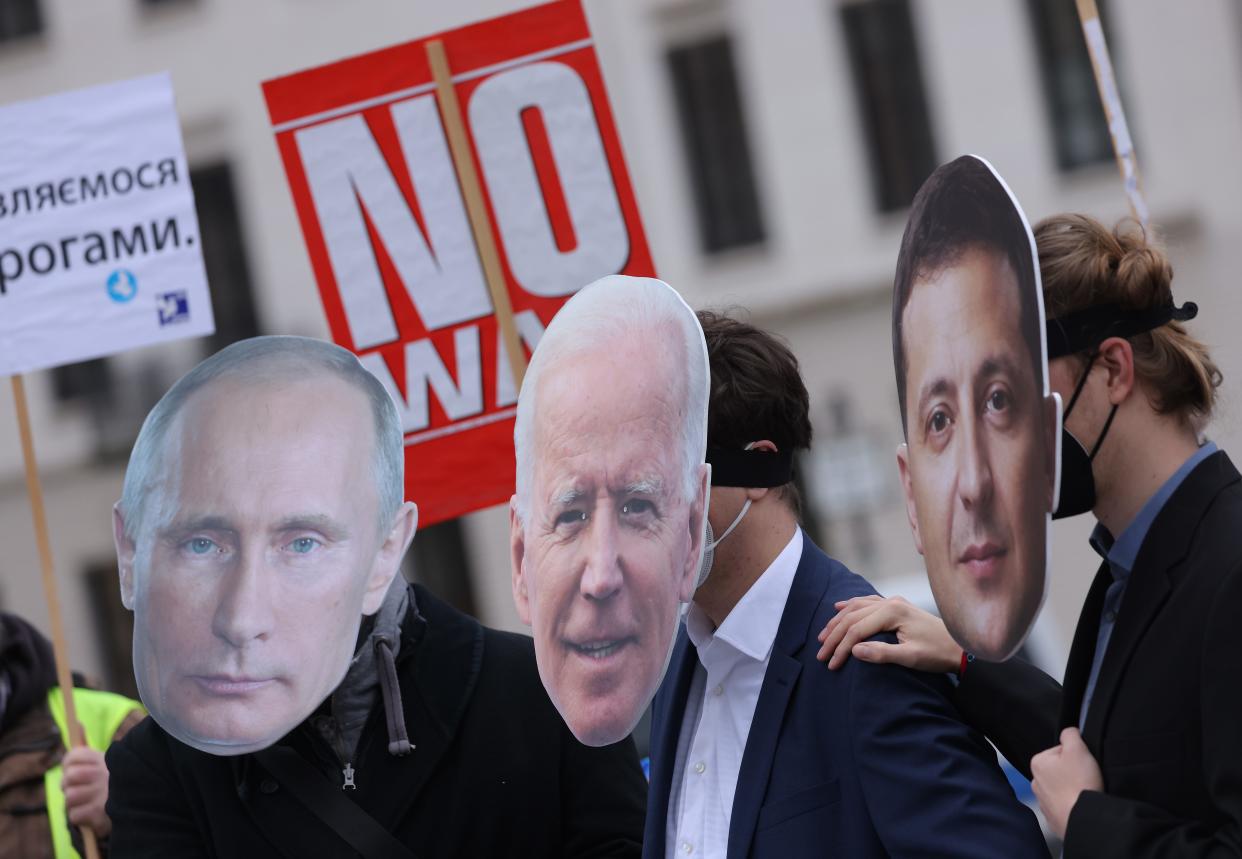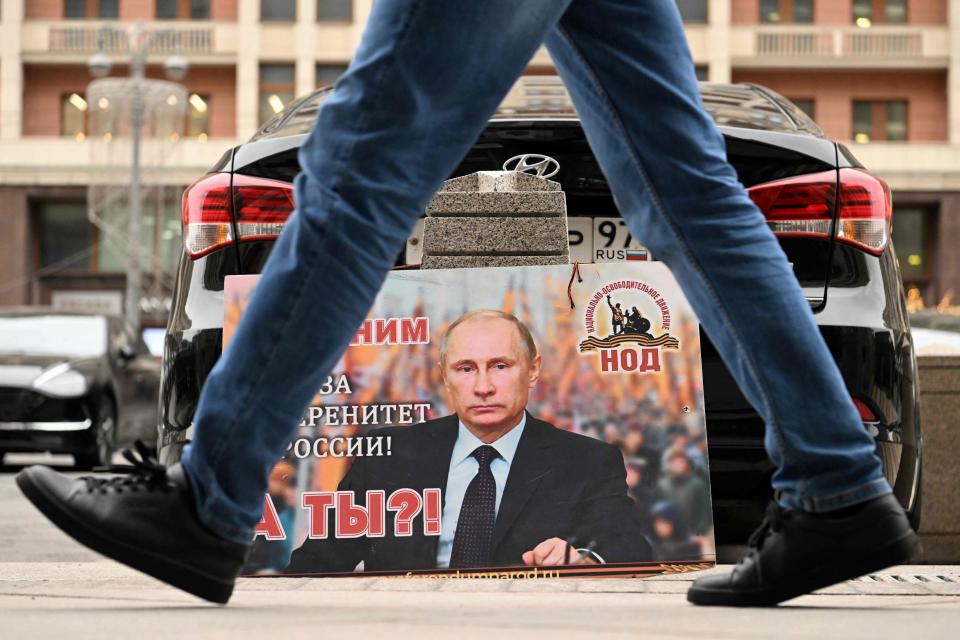Poll takeaways: What one word describes Putin? We asked. The answers weren't pretty.

What one word best describes Vladimir Putin?
In a pair of exclusive USA TODAY/Suffolk University polls, we asked 500 U.S. residents of Ukrainian descent and 500 residents of Russian descent that question. The answers weren't pretty – and they weren't different.
The most frequent response from both groups was "dictator" or "tyrant." The second was "evil" or "monster." Near the top of both lists were also "crazy/insane" and a catchall that sounds something like the title of a famous children's book: "awful/horrible/despicable/terrible."
More: Not a distant war: US residents with ties to Russia and Ukraine unite against Putin
Just six of the 500 Ukrainian-Americans surveyed volunteered a positive or neutral word to describe the Russian president, like "intelligent." Among the 500 Russian-Americans, 59 chose positive or neutral words. The most common fell in the category "determined/stubborn/strong."
The polls of U.S. residents who identify with their Ukrainian heritage and those who identify with their Russian heritage were taken March 5-10 by landline and cell phone. They have a margin of error of plus or minus 4.4 percentage points.

Those choices of words may help explain why those surveyed didn't think the news media are being too harsh on Putin. Just 4% of the Ukrainian-Americans and 14% of the Russian-Americans thought he wasn't getting a fair shake in their coverage.
Putin's approval rating could hardly get lower: 6% in the Russian sample and 2% in the Ukrainian sample approved of the job he was doing as president of Russia.
OK, what about Biden v. Trump?
President Biden got higher grades than Putin, but his approval ratings on handling Ukraine were still mediocre, at 40% among Russian-Americans and 35% among Ukrainian-Americans.
Those surveyed split almost evenly when asked whether they trusted Biden or former president Donald Trump more to handle the conflict in Ukraine. Russian-Americans divide 44% for Trump, 43% for Biden. Among Ukrainian-Americans, Trump edged Biden 40%-37%.
More: Biden says the Ukraine crisis shows why the U.S. must become energy independent. Is that possible?
The only leader to get glowing reviews was Ukrainian President Volodymyr Zelenskyy. His approval ratings were 72% among Russian-Americans and a sky-high 88% among Ukrainian-Americans.
Speaking of trust, what about the news?
The news media in Russia, much of it under state control and distributing disinformation about the war in Ukraine, isn't seen as credible. Even among U.S. residents of Russian descent, just 12% say they are very or somewhat likely to trust their reports about the crisis.
More: Satellite images, surveillance footage, social media posts show the latest on the war in Ukraine
The U.S. news media fares well. Two-thirds of Russian-Americans (64%) and three-fourths of Ukrainian-Americans (75%) were very or somewhat likely to trust what they read and hear from American news sources.
Most trusted of all were reports from Ukrainian news sources: 65% of Russian-Americans and 86% of Ukrainian-Americans were very or somewhat likely to trust what they were reporting.
Heard on the street
Two-thirds of the Ukrainian-Americans said someone had reacted to them about the Russian invasion because they knew they were of Ukrainian descent, and 90% of the reactions were positive ones.
Among the Russian-Americans, four in 10 had someone react to them because they knew they were of Russian descent. Most of those, 56% were positive reactions, but almost three in 10, 29%, were negative.
The negative interactions some Russian-Americans have faced recently, including vandalism and boycotts of Russian restaurants and businesses, don't seem entirely fair. In the poll, 87% of the U.S. residents of Russian heritage opposed the invasion of Ukraine, and 73% of them said they hoped Ukraine would prevail in the war.
This article originally appeared on USA TODAY: Poll: What word describes Putin? And Biden v. Trump on handling Ukraine

